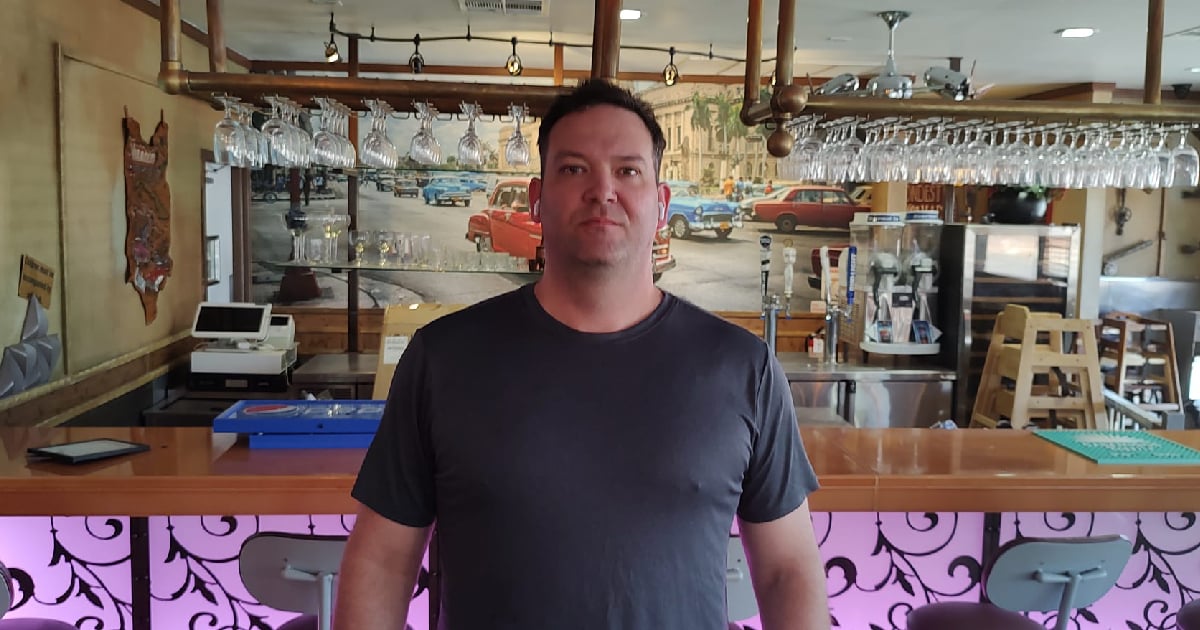On a sunny and hot September afternoon in Las Vegas, I had the pleasure of reconnecting with one of Cuba's most dashing water polo players, Ernesto Sendón from Cienfuegos. Today, he works as a physical therapist in Nevada. It was a shared joy since I covered his sport during his playing days and knew him well, even in his youth. Let's dive into his life, why he left the team, and how he ended up in the United States.
Ernesto Sendón was born in Cienfuegos in 1980. Currently, he resides in Henderson, Nevada, USA. He is the only child of Marta Martínez and Juan Sendón, both of whom were involved in the Cuban revolution—a movement from which Ernesto distanced himself. He has a 15-year-old son, who is Cuban-German and currently living in Germany with his mother. Ernesto has lived in four countries: Cuba, Spain, Germany, and now the United States, where he recently became a U.S. citizen.
Early Water Polo Beginnings
Before I share my water polo journey, I want to dedicate this interview to the thousands of compatriots who disappeared in the waters of the Florida Straits while seeking freedom.
I began my water polo career at the age of nine while attending the "Guerrillero Heroico" primary school in Cienfuegos. My first coach, Mario Medina, was looking for tall children and noticed me because I was about 10 centimeters taller than my classmates. I enrolled in the Pre-EIDE "Eduardo García Delgado," and by fourth grade, I was learning to swim and practicing water polo drills. Our training sessions were often held at Cienfuegos beaches, including Playa Alegre.
A Challenging Yet Successful Journey
The high-performance stage was tough for those of us who started in the prosperous 80s. I joined the National Swimming School "Marcelo Salado" in the 1995-96 academic year, trained by the late Chacho. He was a remarkable coach who valued human qualities and defended the values of Cuban water polo players until his death. Food at "Marcelo Salado" was worse than at my home in Cienfuegos, and this was a stark contrast to the abundance of proteins needed for our sport. Things were bad then; imagine now.
Despite the hardships, I secured numerous victories and accolades at various levels, including the 1997 Central American Swimming Championships in Havana. One memorable anecdote from the 1997 Juvenile Championships was when I scored a spectacular seven-meter goal while being practically naked, as my swimsuit had been torn apart. The water was fortunately very green, masking my exposure. It’s funny now, but it wasn’t at the time.
The Struggles of the 90s
The economic downturn of the 90s, commonly known as the Special Period, marked a challenging time for my generation. We transitioned from "Marcelo Salado" to the Baraguá Pool Complex, but the dire state of the country affected all aspects of life, including the human element. Many deserving athletes were sidelined in favor of children of INDER officials and ex-military personnel. This injustice drove some, like Yordani Núñez, to abandon the sport altogether.
My strong stance against these injustices often led to conflicts within the team. One particularly painful experience involved the ousting of our coach, Richard Rosell, due to a mutiny orchestrated by certain team members. I refused to participate in this betrayal, but the incident left a bitter taste.
Highs and Lows in the National Team
My tenure with the national team was marked by both highs and lows. As a 15-year-old, I was the only player from "Marcelo Salado" to regularly participate in some Selective matches with the Occidentales team. Despite facing formidable opponents, I held my ground and gained valuable experience.
However, the political climate and internal betrayals within the team took a toll. The INDER's efforts to prevent defections led to the infiltration of informants within our ranks, significantly affecting team morale and performance. One infamous informant, Juan Carlos Barrera, repeatedly tried to persuade me to defect, and his constant surveillance created a hostile environment.
The Decision to Leave
By 1997, I was facing psychological and physical burnout. Despite my dedication and talent, the oppressive atmosphere and lack of support led me to retire at just 19 years old. My decision was reinforced by the poor treatment and inadequate resources provided to athletes. Living conditions were dire, with overcrowded rooms, inadequate food, and constant surveillance.
Reflecting on a Difficult Era
My experiences in Cuban water polo were a microcosm of the larger issues plaguing the country. The mismanagement, favoritism, and harsh conditions mirrored the broader societal struggles under the regime. These factors ultimately pushed many talented individuals away from the sport and the country.
Today, as a U.S. citizen, I reflect on these challenges with a sense of resilience and hope for a better future for all athletes still enduring similar hardships in Cuba.
